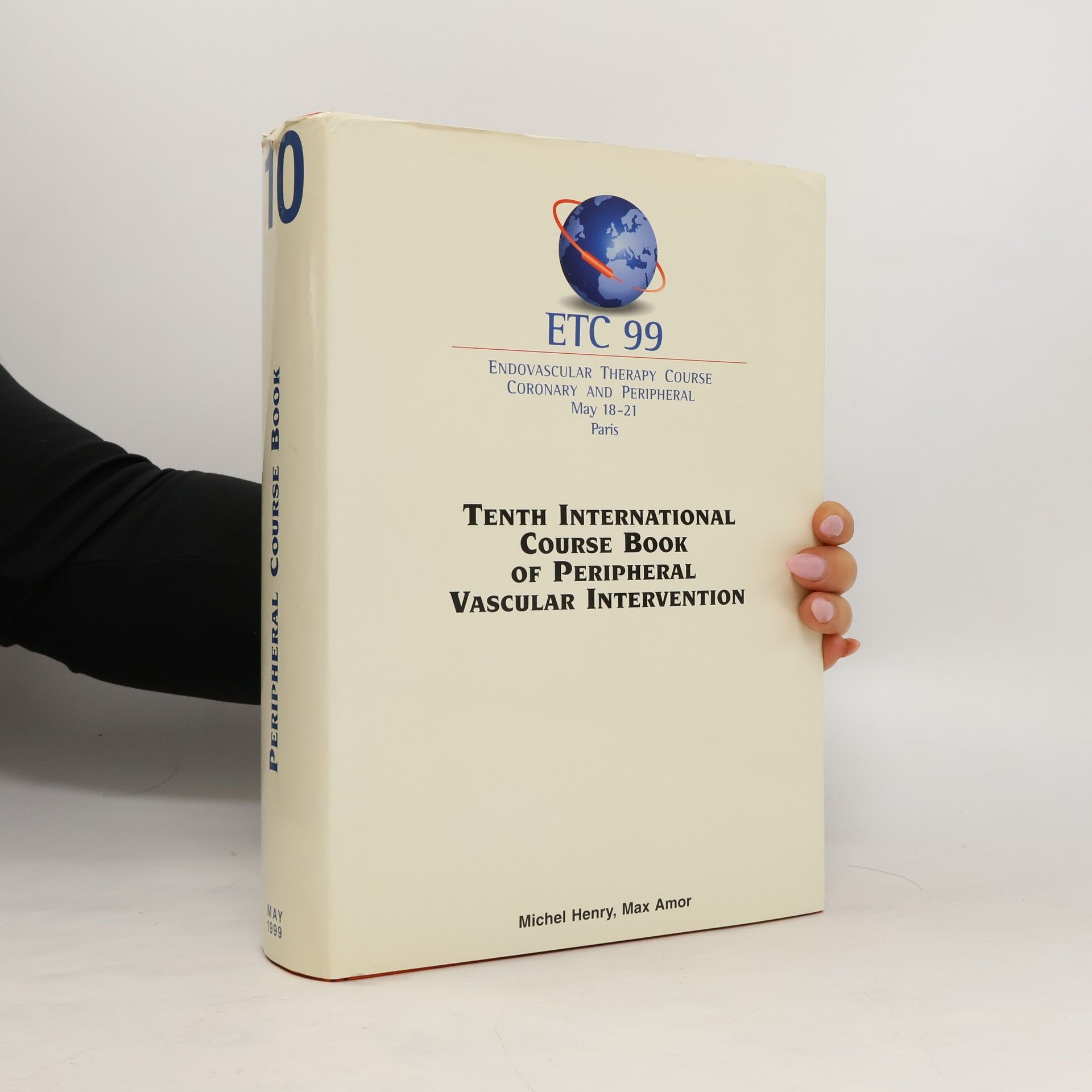Michel Henry Livres






Offers an investigation of Husserlian phenomenology. This book is suitable for those interested in the future of phenomenology or in a philosophy of life in the truest sense.
Incarnation: A Philosophy of Flesh
- 296pages
- 11 heures de lecture
The book presents a compelling argument that Incarnation transcends mere physical existence, emphasizing the significance of being in the flesh. Michel Henry explores how true experiences, such as joy, sorrow, and sensory perceptions, originate from our embodiment. This perspective highlights the profound connection between existence and the flesh, suggesting that our understanding of life is deeply rooted in our physical sensations and experiences.
Marx
- 136pages
- 5 heures de lecture
According to Michel Henry, no thinker has been more influential than Marx, and no one has been more misunderstood. With his characteristic clarity and elegance, Henry seeks to pull out the philosophical heart of Marx's work and the reasons this complex philosophy has so often been simplified, distorted and obscured. Marx: An Introduction is not just a recovery of the theoretical centre of Marx's thinking, but also a brilliant introduction to the work of Marx in general; concise and punchy without glossing over the difficult material, it provides a totally fresh reading of Marx's corpus. Michel Henry shares with Marx a concern for the living work and the living individual and this shared preoccupation is brilliantly conveyed throughout the book. An essential read for those wrestling with Marx for the first time, and those looking for a new way to approach well-trodden territory.
Inkarnation
- 440pages
- 16 heures de lecture
„Und das Wort ist Fleisch geworden.„ An dieser unvorstellbaren Behauptung hat sich das Geschick des Christentums die Jahrhunderte hindurch entschieden. Michel Henry fragt nun im Zuge einer radikalphänomenologischen Aufklärung des Leibes: Wie muss das Fleisch beschaffen sein, um überhaupt Offenbarung sein zu können? Und was muss die Offenbarung sein, damit sie sich als Fleisch vollzieht? In prinzipieller Auseinandersetzung mit dem phänomenologischen Denken von Maine de Biran bis Merleau-Ponty über Husserl und Heidegger wird deutlich, was Existenz im Fleisch heißt, was „Inkarnation“ als fleischliches Leibsein bedeutet: das Fleisch als originär subjektiver Leib ist nicht der sichtbare Körper, sondern die Bedingung, um das Leibsein als Lebendigsein überhaupt zu erfahren.
Fenomenologie života I. - O fenomenologii
- 224pages
- 8 heures de lecture
Fenomenologie života I. O fenomenologii je prvním dílem souboru kratších textů, původně publikovaných v různých časopisech, sbornících a materiálech z konferencí. Jejich význam spatřujeme především v tom, že čtenáře seznámí se základními principy tzv. materiální fenomenologie, které Michel Henry zformuloval ve svých nejslavnějších a nejdiskutovanějších dílech: L’essence de la manifestation (1963), Philosophie et phénoménologie du corps. Essai sur l’ontologie biranienne (1965), Incarnation. Une philosophie de la chair (2000). Předkládaná kniha nás tedy znovu trpělivě zasvěcuje do klíčové problematiky dvojího způsobu fenomenalizace, abychom proti manifestaci v transcendenci postavili světu se vymykající zjevení života, který sám toto dílo uskutečňuje, znovu nás staví před fenomenologickou možnost opustit horizont světla a vstoupit do hájemství radikální interiority, kterou nikdy nikdo nespatřil a nikdy ani nespatří. A pokud jsme spolu s Henrym prošli touto inverzní cestou, zbývá jen, abychom se nechali uchvátit pohybem hluboké sebe- afekce, která – coby neviditelný původ veškeré manifestace – vymezuje ipseitu transcendentálně, a jakožto tělesné, živoucí, trpící bytosti nalezli svůj akosmický původ a své patické fenomenologické uskutečnění ve věčném procesu ne-ekstatického sebe-zjevování absolutního Života.
"Ich bin die Wahrheit"
- 406pages
- 15 heures de lecture
Ausgehend von einer radikalen Phänomenologie des Lebens fragt dieses Buch nicht nach der Wahrheit des Christentums, sondern welche Art von Wahrheit es bietet und wie es den Menschen zu ihrem Heil führt. Der Mensch wird nicht aus der Welt hervorgebracht, sondern im Leben Gottes gezeugt und ist dessen Sohn. Dieses Leben Gottes offenbart sich als Wesen Gottes, sodass der Mensch als Lebendiger letztlich durch diese Selbstoffenbarung verstanden werden muss, nämlich als Sohn im transzendentalen Ur-Sohn, in Christus. Eine genauere Phänomenologie Christi zeigt, wie dieser als ewiges, selbstaffektives Wort des Vaters gezeugt wird, um als Erst-Lebendiger den konkreten Zugang eines jeden Ichs zum Leben zu bilden. Die Geburt des Menschen als Sohn im Sohn kehrt nicht nur die Auffassungen vom Menschen als kausalem Wesen um, sondern beinhaltet auch eine Ethik der Intersubjektivität und des Weltbezugs, in der Gesetz und Sorge den Werken der Barmherzigkeit weichen. Diese Ethik des neutestamentlichen Liebesgebotes entspricht der Ontologie des rein phänomenologischen Lebens, indem sie in einer möglichen zweiten Geburt das absolute Leben Gottes als Grund unserer lebendigen Affektionen erprobt. Drei französische Denker, Emmanuel Lévinas, Jacques Derrida und Michel Henry, transformieren die philosophische Landschaft. Henrys jüngstes Werk zeichnet sich durch die Organisation des eigenständigen Gedankengangs aus.
In dem frühen Hauptwerk „L’essence de la manifestation“ (1963) legt Henry die Grundlagen für seine Lebensphänomenologie. Er setzt sich dabei kritisch mit Husserls Phänomenologie auseinander und führt sie maßgeblich weiter. Zeigt sich in der Phänomenologie von Anfang an die enge Verbundenheit zwischen französischer und deutscher Geisteskultur, so festigt Henry dieses Band ein weiteres Mal, indem er die Frage nach dem Ursprung von Husserls Intentionalität stellt. Henry bereichert diese Diskussion durch die philosophische Verwendung des französischen Begriffs manifestation, der in der Terminologie der deutschen Philosophie nicht vorkommt und für den es auch sonst keine eindeutige Entsprechung im Deutschen gibt. Dieses Titelwort seines Hauptwerkes entwickelt Henry aber gerade aus dem Deutschen, indem er auf den Begriff der Erscheinung von Hegel zurückgeht und ihn zugrunde legt. Mit dem Titel der deutschen Übersetzung In-Erscheinung-Treten wird Henrys Anliegen deutlich gemacht, die Differenz zwischen Leben und Welt aufzuzeigen. Das Leben ist nicht Teil der Welt, es tritt aber in der Welt in Erscheinung. Es ist deshalb nicht von der Welt her zu begreifen, sondern kann von sich selbst her als transzendentales Leben philosophisch erschlossen werden.
